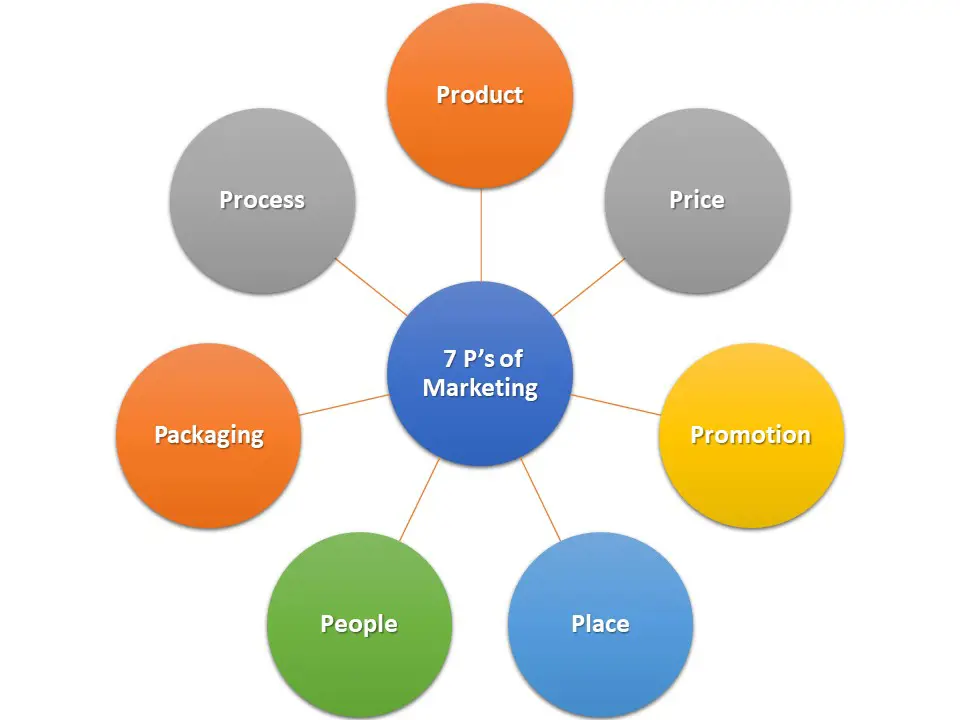When it comes to event planning, having a solid marketing approach is crucial for the success of any event. In today’s competitive market, event planners need to be strategic and creative in order to attract and engage their target audience. A well-executed marketing plan can make the difference between a successful event with high attendance and one that falls flat.
In this blog post, we will explore various effective marketing approaches that event planners can use to ensure a successful event. From market research to digital marketing strategies, we will cover all the necessary elements that go into creating a successful event marketing plan. So let’s dive in and learn about the best practices for event marketing!
Introduction to Marketing Approaches in Event Planning


Event marketing is the process of promoting an event through various channels to attract and engage the target audience. It involves using different tactics and strategies to create buzz around the event and entice people to attend. In today’s digital age, event marketing has become more diverse and complex with the advent of new technologies and social media platforms.
The ultimate goal of event marketing is to drive attendance, increase brand visibility, and ultimately generate revenue. To achieve this, event planners need to have a clear understanding of their target audience, set achievable goals, and use the right mix of marketing tactics. Here are some key marketing approaches that event planners should consider when planning an event:
- Market Research and Audience Analysis
Before starting any event planning or marketing activity, it is essential to conduct thorough market research and analyze your target audience. This will help you understand the needs, interests, and preferences of your potential attendees, giving you insights into how to tailor your event to meet their expectations.
Some key questions to ask during market research include:
- Who is your target audience? (age, gender, profession, etc.)
- What are their interests and hobbies?
- What are their pain points and how can your event address them?
- What other events do they attend, and what makes those events successful?
Conducting surveys and focus groups can also provide valuable insights into the preferences and expectations of your target audience. This information will help you create a more targeted and personalized marketing campaign that resonates with your potential attendees.
- Setting Clear Objectives and Goals
Having clear objectives and goals is crucial for the success of any event marketing plan. It helps you stay focused and measure the effectiveness of your marketing efforts. When setting objectives, make sure they are specific, measurable, achievable, relevant and time-bound (SMART). Some common objectives for event marketing include:
- Increase event attendance by X%
- Generate X amount of revenue from ticket sales
- Create brand awareness and increase brand visibility
- Gather leads and increase conversions
Once you have set your objectives, break them down into smaller, achievable goals. This will help you track your progress and make necessary adjustments to your marketing plan if needed.
- Developing a Unique Value Proposition
With the increasing number of events being organized, it is essential to have a unique value proposition that sets your event apart from the rest. Your value proposition should answer the question, “Why should people attend your event?” It should highlight the key benefits and experiences attendees will gain from attending your event.
To develop an effective value proposition, consider the following elements:
- What makes your event different from others?
- What are the key benefits of attending your event?
- What experiences will attendees gain from your event?
- How can you communicate your value proposition effectively to your target audience?
A strong value proposition will not only attract potential attendees but also make them more likely to spread the word about your event to their networks.
- Leveraging Digital Marketing Channels
In today’s digital age, having a robust online presence is crucial for any marketing strategy. Digital marketing offers event planners a wide range of channels to promote their event and reach a larger audience. Here are some digital marketing channels that event planners can leverage:
- Social Media: Platforms like Facebook, Twitter, LinkedIn, and Instagram are effective channels for promoting events and engaging with potential attendees. Create event pages, post updates, and use hashtags to reach a wider audience.
- Email Marketing: Use email marketing to send targeted and personalized invitations to your potential attendees. Make sure your email is visually appealing, has relevant information, and includes a clear call-to-action.
- Influencer Marketing: Partnering with influencers in your industry can help you reach a larger audience and build credibility for your event.
- Paid Advertising: Platforms like Google AdWords and Facebook Ads allow you to target specific demographics and interests, making it a cost-effective way to reach potential attendees.
- Traditional Marketing Methods
While digital marketing has become increasingly popular, traditional marketing methods still hold their value and are worth considering when planning your event marketing strategy. Some traditional marketing tactics that can be effective for event promotion include:
- Print Advertising: Utilize newspapers, magazines, and local publications to advertise your event to a targeted audience.
- Out-of-home Advertising: Billboards, transit ads, and banners can help create brand visibility and attract attention to your event.
- Direct Mail: Sending out flyers, postcards, and brochures to a targeted list of potential attendees can generate interest and awareness for your event.
- Networking Events: Attend relevant networking events and conferences to promote your event and make valuable connections with potential attendees and partners.
- Branding and Messaging Consistency
Consistency in branding and messaging is crucial for any successful marketing campaign. It helps build recognition and trust among potential attendees and creates a unified image of your event. Make sure to use the same colors, fonts, and design elements across all your marketing materials, including website, social media, and print materials.
Similarly, your messaging should be consistent and aligned with your value proposition. Use the same tone and voice in all your marketing communications to create a cohesive brand image and resonate with your target audience.
- Budget Allocation and Management
Having a well-defined budget is essential for any event marketing plan. It helps you allocate resources effectively and prioritize your spending on tactics that will give you the best returns. When creating your budget, consider all the costs involved in promoting your event, including venue rental, marketing materials, advertising, and staffing.
To ensure effective budget management, keep track of your expenses and measure their effectiveness in achieving your goals. This will help you make necessary adjustments to your budget as needed and avoid overspending.
- Metrics and KPIs for Measuring Success
Measuring the success of your event marketing efforts is crucial to understanding what worked and what needs improvement for future events. Set key performance indicators (KPIs) based on your objectives, and track them throughout your marketing campaign. Some common metrics to track include:
- Ticket sales
- Event website traffic
- Social media engagement
- Email open and click-through rates
- Website conversions
- Brand mentions and sentiment
Use analytics tools to gather data and insights about your marketing efforts, and use this information to make informed decisions for future events.
- Case Studies of Successful Event Marketing
Looking at successful case studies of event marketing can provide valuable insights and ideas for your own marketing strategy. Here are some examples of successful event marketing campaigns:
- SXSW: This annual music and arts festival uses a mix of digital and traditional marketing tactics to attract millions of attendees each year. They leverage social media to create buzz and engage with their audience, while also using print, radio, and outdoor advertising for wider reach.
- Disney: The iconic brand has mastered event marketing by creating unforgettable experiences for their audience. From their theme parks to movie premieres, Disney knows how to create a buzz and generate interest through various marketing channels.
- TED Talks: The popular conference series uses influencer marketing to attract top speakers and reach a global audience. They also use social media to promote their events and engage with their community.
- Adapting to Changing Market Trends
The event industry is constantly evolving, and it is crucial for event planners to adapt to changing market trends to stay relevant and competitive. Keep an eye on new technologies and digital platforms that can help you reach your target audience more effectively. Also, keep up with industry news and attend conferences and seminars to stay updated on the latest trends and best practices in event marketing.
- Conclusion and Future Trends in Event Marketing
In conclusion, having a well-thought-out marketing approach is essential for the success of any event. It requires a thorough understanding of your target audience, clear objectives, and a mix of both traditional and digital marketing tactics. By leveraging the right marketing strategies, event planners can create buzz and excitement around their events, driving attendance and ultimately achieving their goals.
As we move into the future, we can expect event marketing to become even more diverse and technology-driven. Virtual and hybrid events are becoming increasingly popular, and event planners will need to adopt new tools and strategies to promote these types of events effectively. Additionally, personalization and targeted marketing will continue to be key trends in event marketing, as attendees seek more personalized and tailored experiences.
In conclusion, a successful event marketing approach is about understanding your audience, setting clear goals, and using the right mix of tactics to create a memorable and engaging experience for your attendees. By following the best practices outlined in this blog post, event planners can ensure a successful and impactful event that leaves a lasting impression on their audience.

